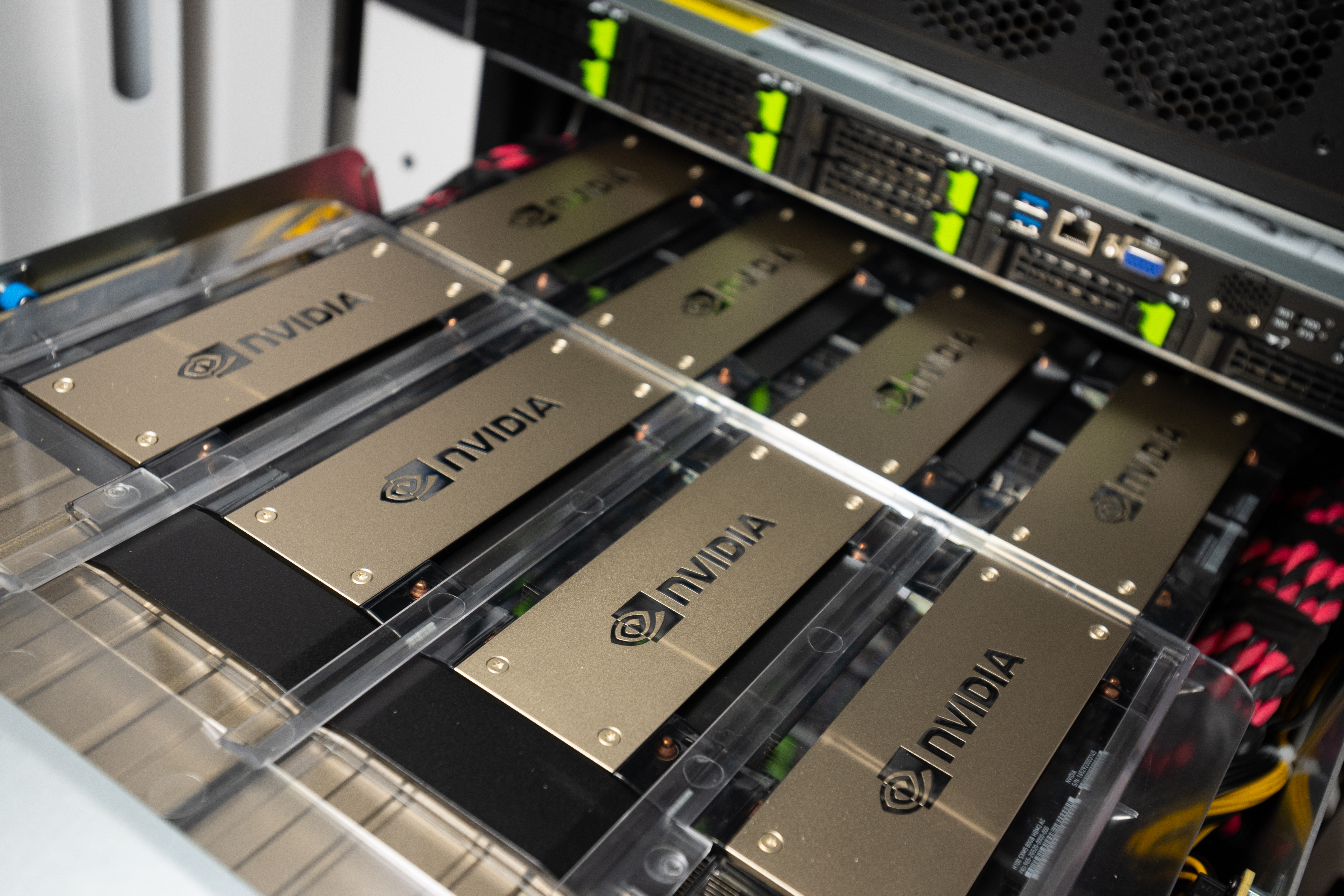 AI
AI
 AI
AI
 AI
AI
The Georgia Institute of Technology said today it has partnered with Nvidia Corp. to create an artificial intelligence supercomputer hub that’s dedicated to teaching students.
Called AI Makerspace, it has been deployed at Georgia Tech’s College of Engineering where it will serve undergraduate students, giving them access to the kind of computing power that was previously available only to researchers and the biggest companies. The idea is that students can leverage its enormous power to sharpen their skills as part of an initiative that aims to shape a future generation of AI experts.
AI Makerspace is a dedicated, high-performance computing cluster that will be made available to Georgia Tech students via the cloud. It’s powered by 20 Nvidia H100-HGX servers that house 160 Nvidia H100 graphics processing units, which was until recently that company’s most advanced AI accelerator, capable of supporting the most advanced AI and machine learning workloads.
To provide an idea of the computing power it delivers, Georgia Tech said a single Nvidia H100 GPU would take just one second to come up with a multiplication operation that would take the university’s 50,000 students 22 years to achieve.
The AI Makerspace platform is designed to aid students of Georgia Tech’s foundational, theory-focused AI curriculum, providing them with a hands-on platform that can tackle real-world challenges and design advanced AI applications. Georgia Tech said its partnership with Nvidia goes beyond hardware, as the chipmaker will also make its AI software, such as the Nvidia AI Enterprise platform, available to students.
Arijit Raychowdhury, professor and Steve W. Chaddick School Chair of Electrical and Computer Engineering, said AI Makerspace is a significant advancement in educational technology. “To draw a comparison, the Makerspace will provide a technological upgrade equivalent to switching from an Etch A Sketch to an iPad,” he said. “That’s the level of difference in technology that the AI Makerspace provides to students.”
Analyst Holger Mueller of Constellation Research Inc. told SiliconANGLE that greater access to more powerful supercomputing resources is sure to benefit students at Georgia Tech, but he pointed out that Nvidia has other motivations besides just fostering the next generation of AI talent. He said the practice of targeting kids in schools is a proven playbook for tech companies: The idea is that they familiarize students with their software and hardware offerings early so those platforms become the favored choice by the time those kids are ready to go to work and put their skills to use.
“Nvidia is taking a page out of that playbook with this partnership with Georgia Tech, and I’d imagine that we will see similar partnerships with other institutions in future, as the AI skills race is flipping the pyramid,” Mueller said. “Senior students do not have so many course credits to satisfy and so they have more time available to play with the new prompts and offerings, which means they often have a magnitude of more experience than the actual AI specialists working for enterprises today.”
The system has already been made available to undergraduate students in Georgia Tech’s ECE 4252: Fundamentals of Machine Learning (FunML). They’re using AI Makerspace to learn, experiment, prototype and showcase advanced AI applications at scale.
Later this year, Georgia Tech will expand access to include all eight schools in its College of Engineering, as part of a staggered rollout. By spring of next year, the university said all of its engineering students, both undergraduate and graduate, will be able to access AI Makerspace for noninstructional learning.
Georgia Tech’s AI roadmap also calls for the launch of AI Makerspace Omniverse, which will be a sandboxed environment for augmented reality and virtual reality applications. This is another area with huge potential, as these virtual environments require massive amounts of computing power. In addition, Georgia Tech plans to integrate AI services with its colleges, with a unique emphasis on human-AI interaction, as part of an effort to showcase AI as a transformative force that can aid in people’s lives.
“AI is increasingly interdisciplinary and an irreversibly important part of today’s workforce,” Raychowdhury said of the ongoing plans. “To meet the needs of tomorrow’s innovation, we need a diverse workforce proficient in utilizing AI across all levels.”
Support our mission to keep content open and free by engaging with theCUBE community. Join theCUBE’s Alumni Trust Network, where technology leaders connect, share intelligence and create opportunities.
Founded by tech visionaries John Furrier and Dave Vellante, SiliconANGLE Media has built a dynamic ecosystem of industry-leading digital media brands that reach 15+ million elite tech professionals. Our new proprietary theCUBE AI Video Cloud is breaking ground in audience interaction, leveraging theCUBEai.com neural network to help technology companies make data-driven decisions and stay at the forefront of industry conversations.